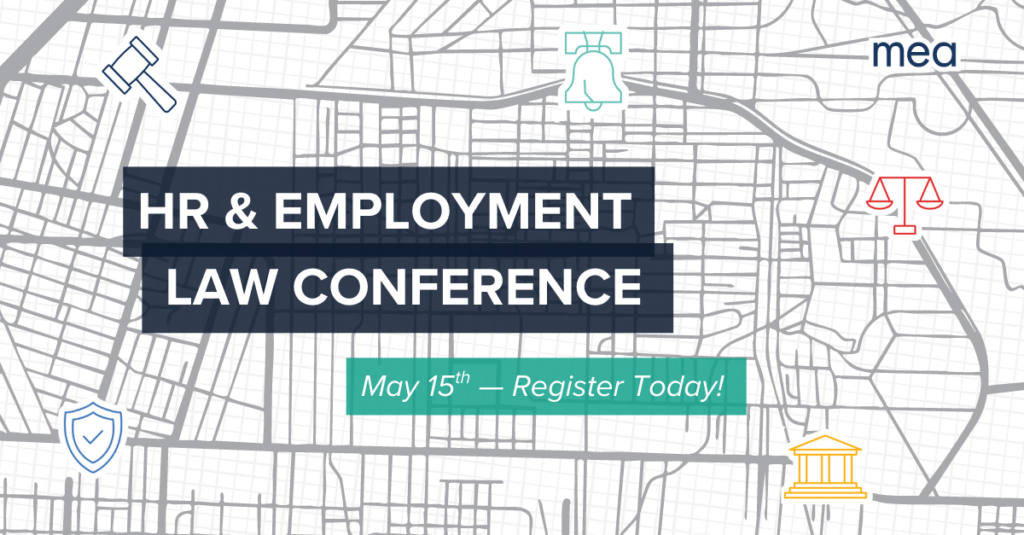With Valentine’s Day upon us, employers likely are hoping that romance is not in the air – at least not in the workplace. According to a recent Forbes survey, however, over 60% of employees have had a romantic relationship with a coworker, and 40% of workplace romances involve cheating on an existing partner. With those statistics, workplace relationships – and their inevitable breakups – quickly can become a nightmare for Human Resources. The drama surrounding these relationships can adversely affect employee morale and productivity, and workplace relationships also may lead to claims of favoritism or sexual harassment.
With all of this in mind, employers should be taking proactive steps to limit workplace drama and potential liability, such as the following.
Have in place an anti-harassment policy that is comprehensive, easy to understand, and regularly communicated to all employees.
At a minimum, every employer should have in place an anti-harassment policy that clearly prohibits sexual harassment, defines what constitutes sexual harassment in terms easily understood by employees, and requires employees to report sexual harassment. Any such policy should include a harassment complaint procedure that is accessible to all employees and has multiple avenues for raising complaints. The policy also should state that the company will promptly and thoroughly investigate all complaints and that the company will not retaliate against any person who reports or participates in an investigation of sexual harassment. Employers should conduct regular training for employees to make sure they understand the employer’s policy.
Regularly and effectively train supervisors and managers about how to prevent, recognize, and respond to conduct that, if left unchecked, may rise to the level of prohibited harassment.
Having written policies is important, but it is equally important that managers are thoroughly trained on how to respond to sexual harassment complaints and how to recognize potentially problematic situations even if no complaint is made – such as workplace dating. Depending on where an employer is located, the law may require this training. Even if such training is not legally mandated, it makes good legal and business sense to regularly provide it.
Develop A Written Policy Regarding Dating
One way to address workplace relationships is to establish a workplace dating policy. This may be included as part of a comprehensive anti-harassment policy or as a stand-alone policy. Having a code of conduct provides a guide for employees as they navigate through the reality of romantic relationships in the workplace. It also enables employers to discipline employees for behaviors that violate the code of conduct without the discipline being tied to the employees’ romantic relationship.
Consider Implementing Love Contracts
A love contract is a written document in which employees who are in a romantic relationship affirm that it the relationship is consensual, that they may leave the relationship at any time without fear of retaliation and that they understand and agree to comply with all company policies, including the company’s code of conduct, anti-harassment policy and reporting requirements. While such contracts can provide a layer of protection to the employer if a workplace relationship sours and one or both of the employees claim the relationship was nonconsensual (or that they were a victim of sexual harassment), these documents are not foolproof. In addition, some employees will view having to sign a love contract as a violation of their privacy.
Workplace romances can be a problem for employers. They can affect productivity and morale and result in claims of sexual harassment and unfair treatment. Being proactive about addressing workplace relationships can help guide workplace conduct and limit potential liability if and when these relationships end.
Employers should consult with experienced human resources professionals and/or labor and employment counsel with any questions regarding these issues. For all MEA members, the Hotline is available to provide this assistance. For MEA Essential and Premier members, a Member Legal Services attorney is available for additional consultation.
Editor’s Note: This post was originally published in February of 2022 and has been updated for accuracy and comprehensiveness.
About the Author
Amy McAndrew is MEA’s Director of Legal and Compliance Services and has been representing management in labor and employment matters for over twenty-five years.


